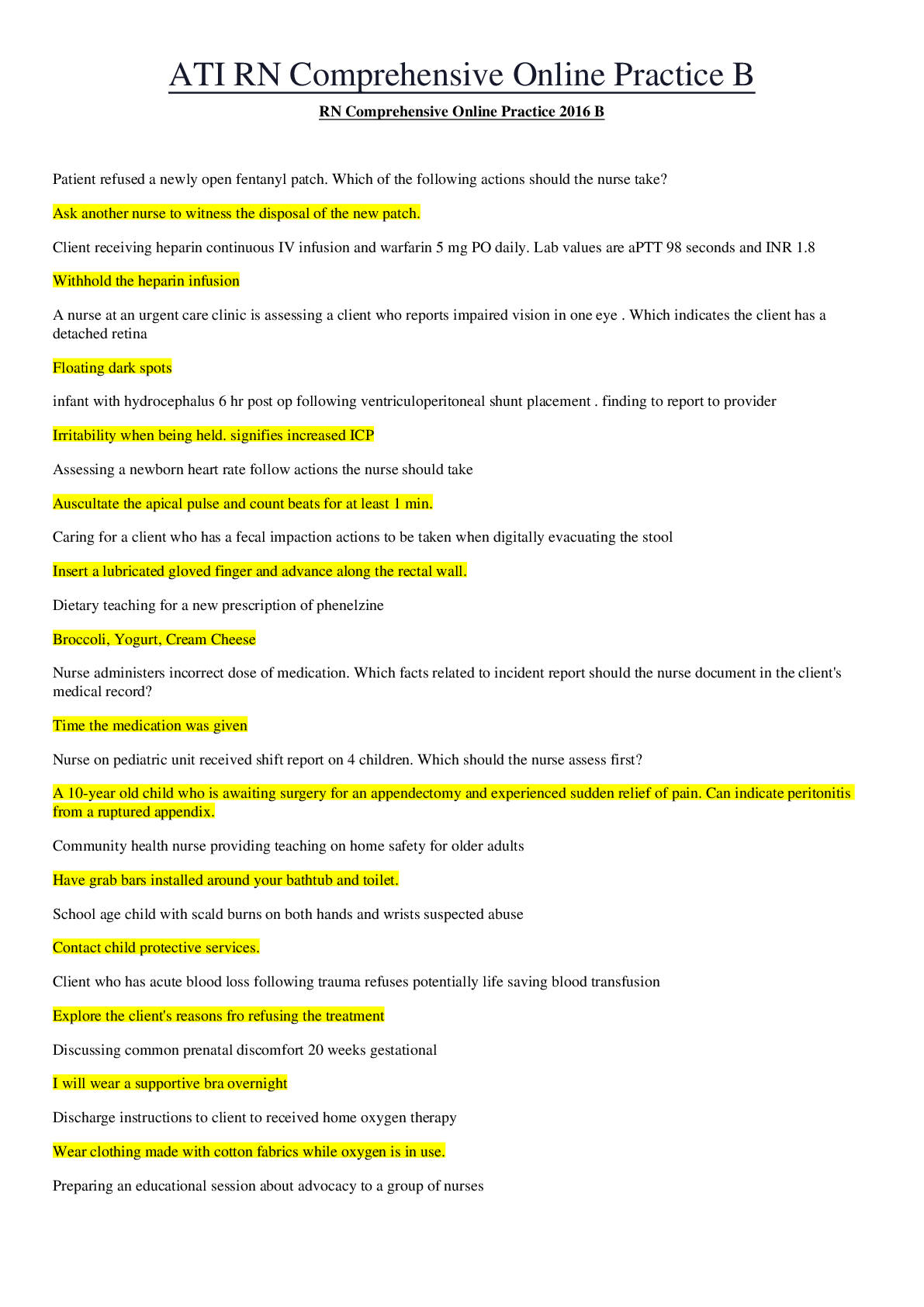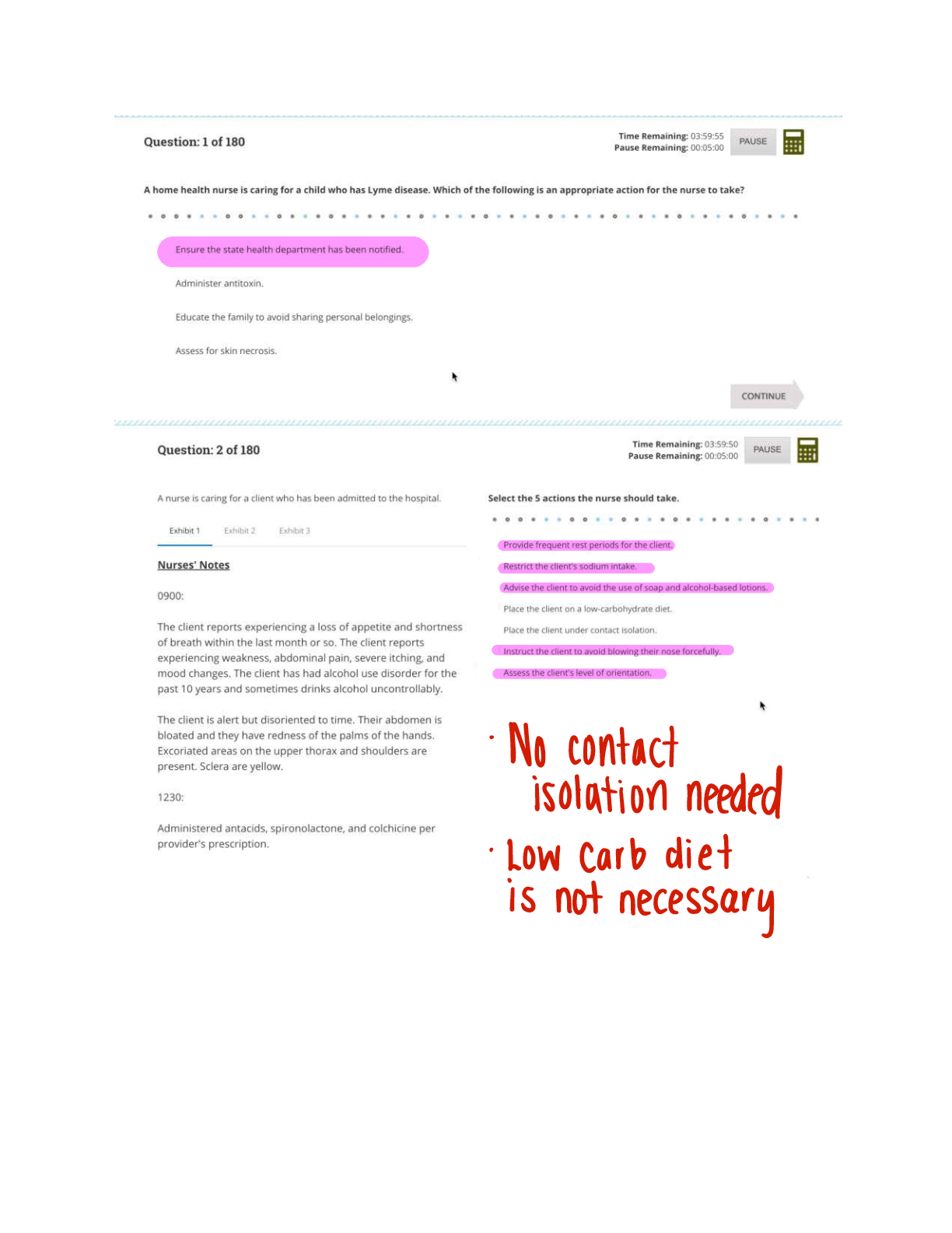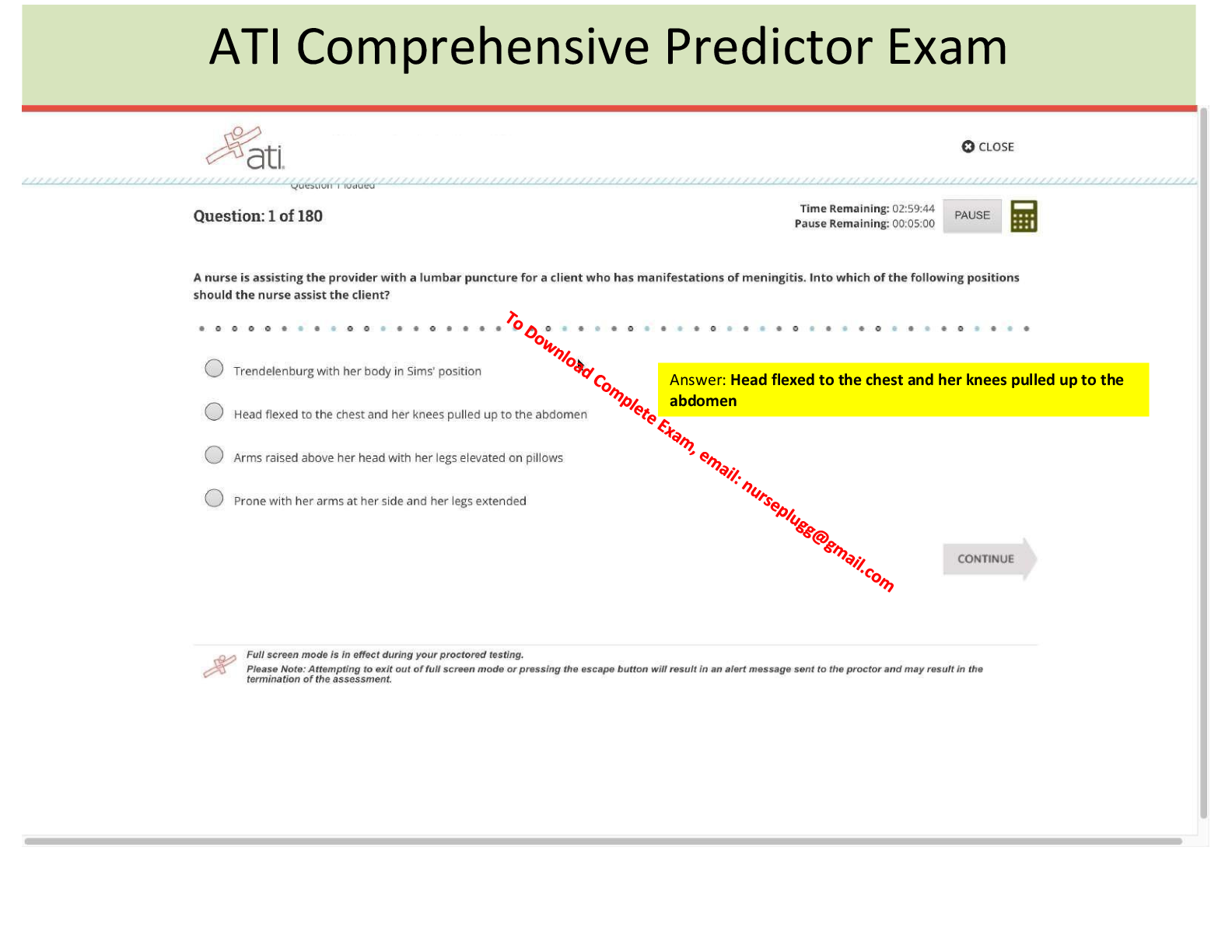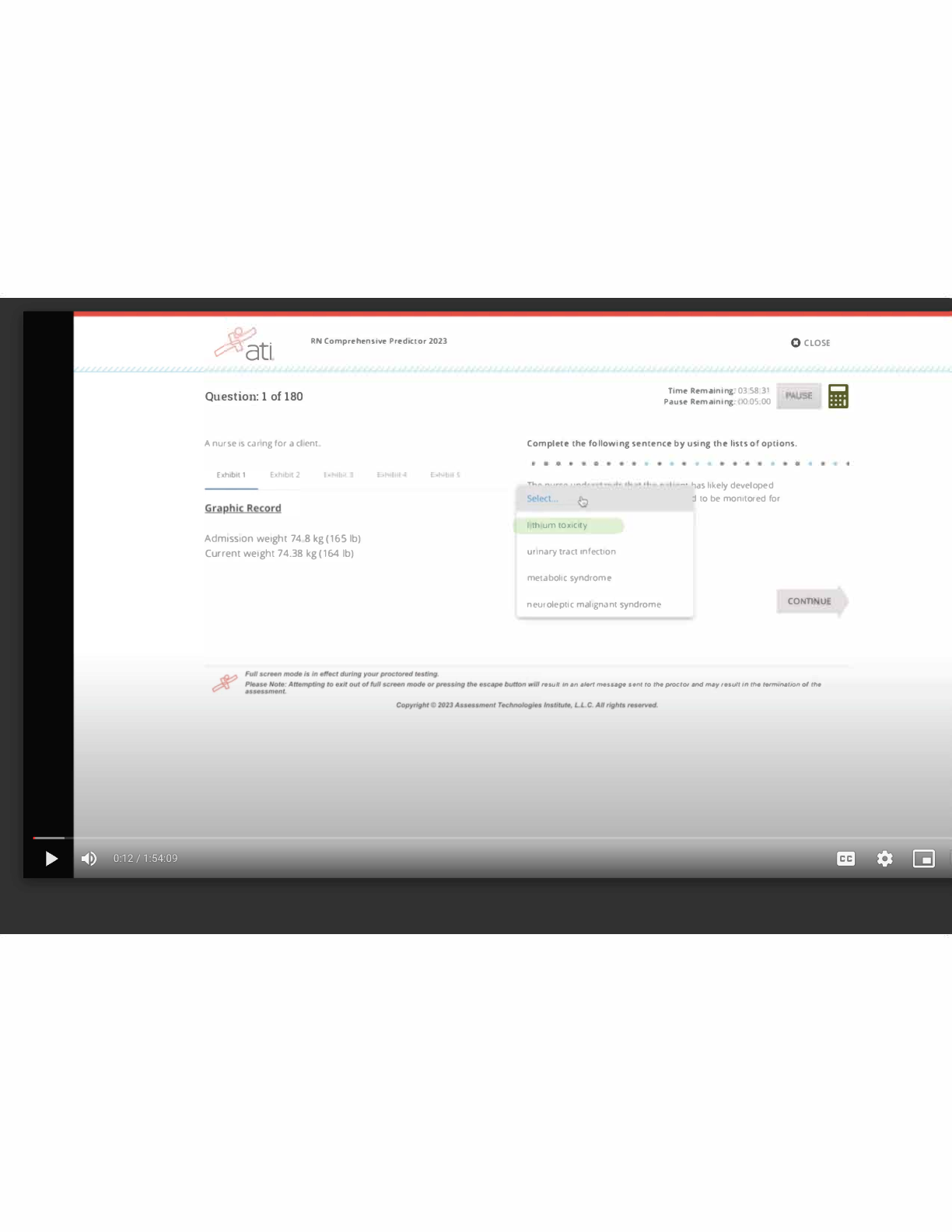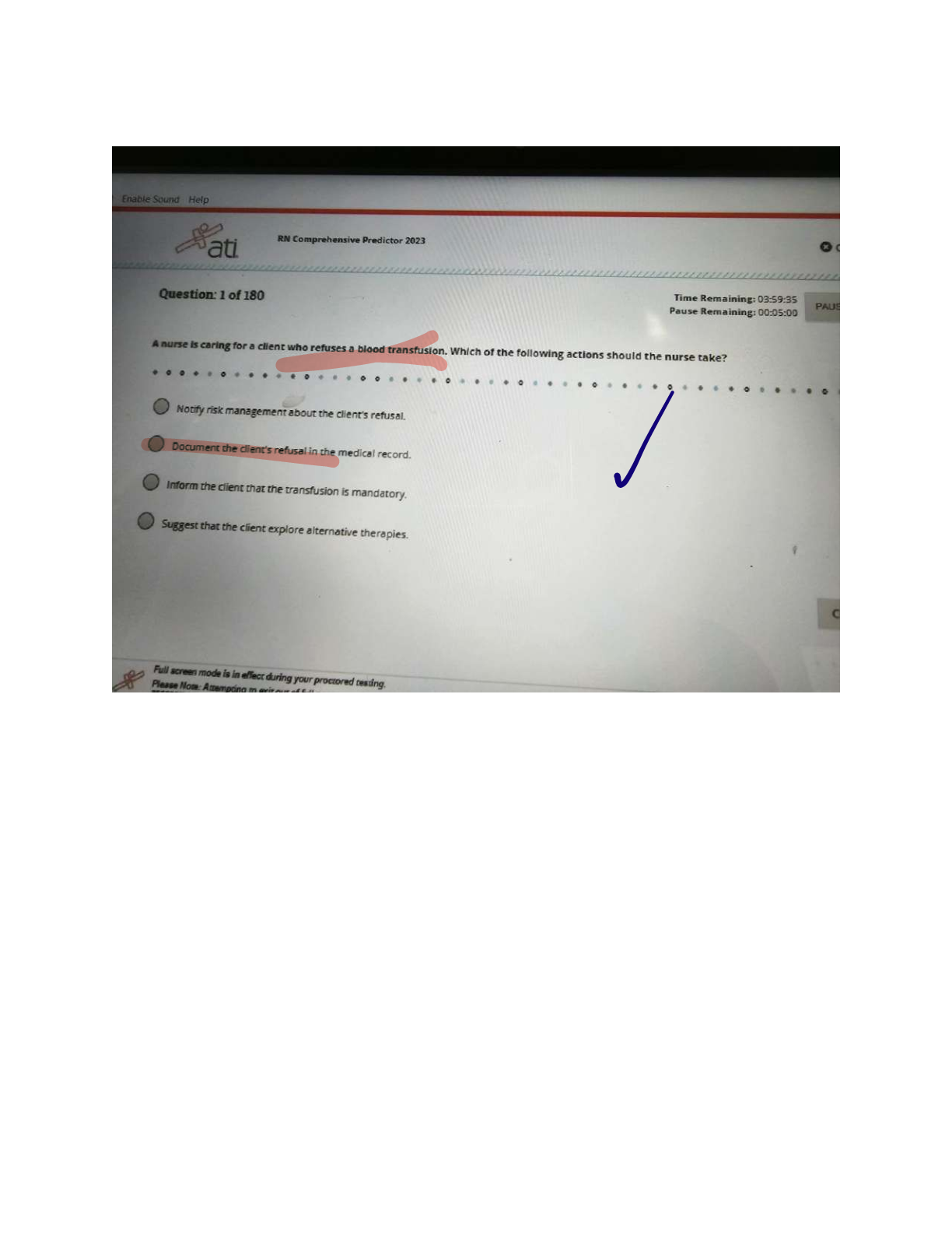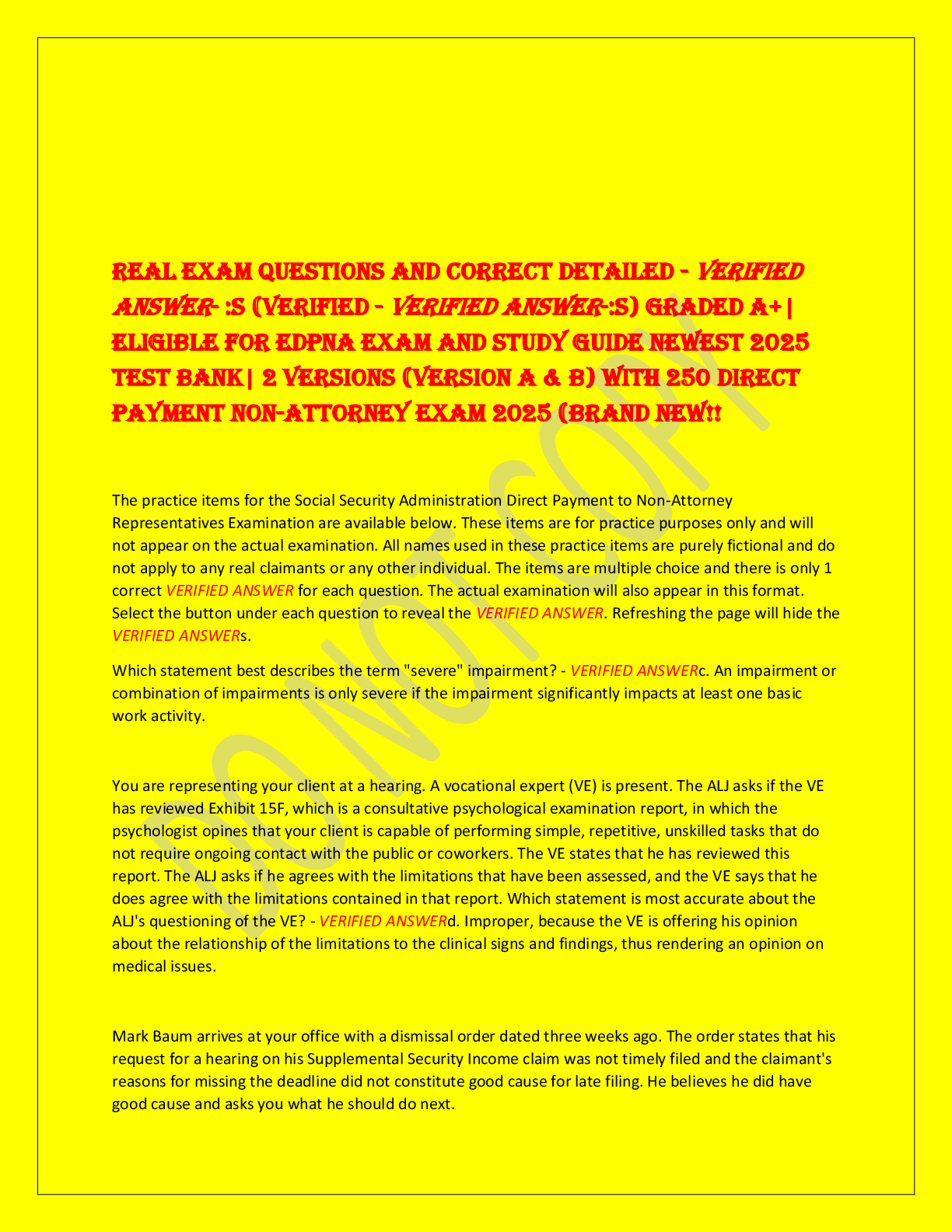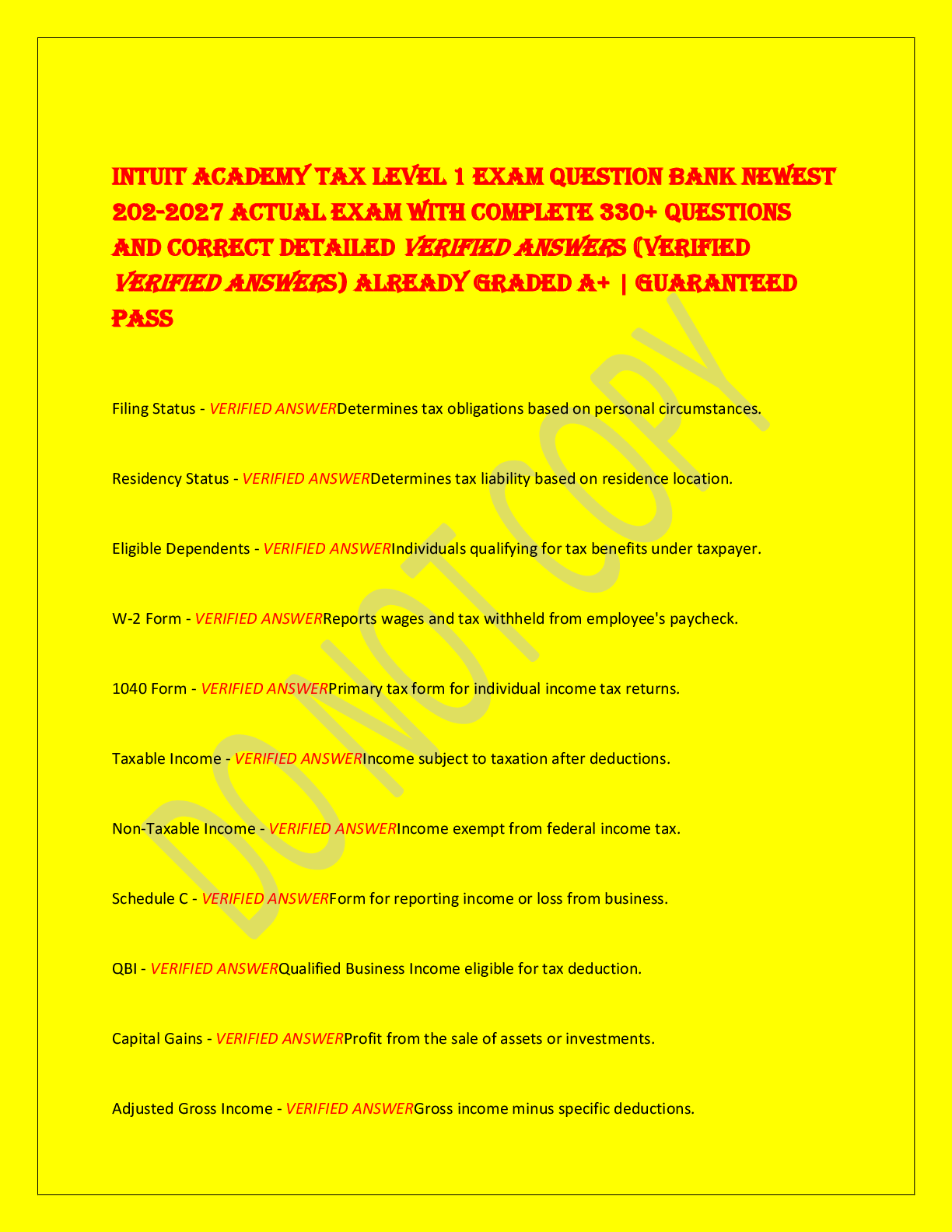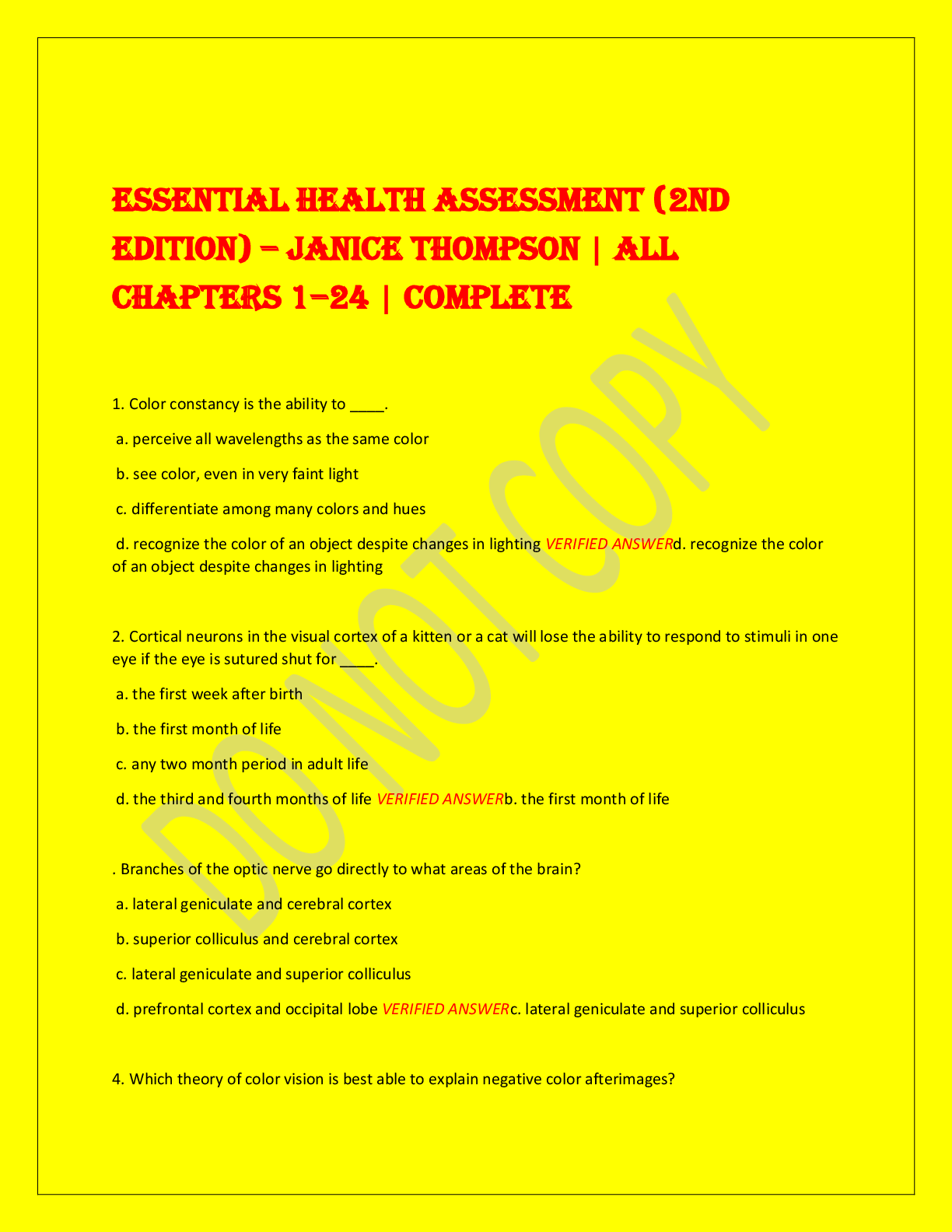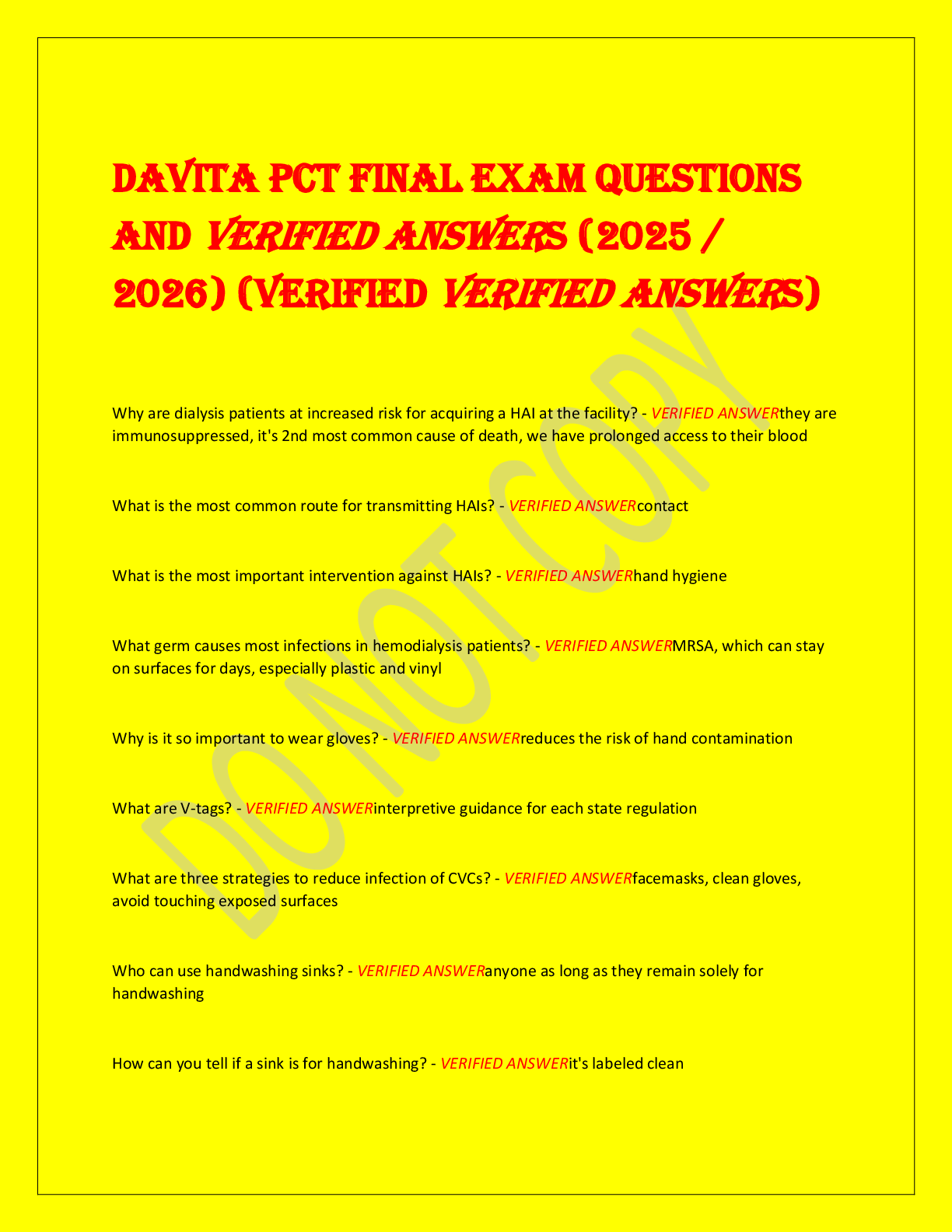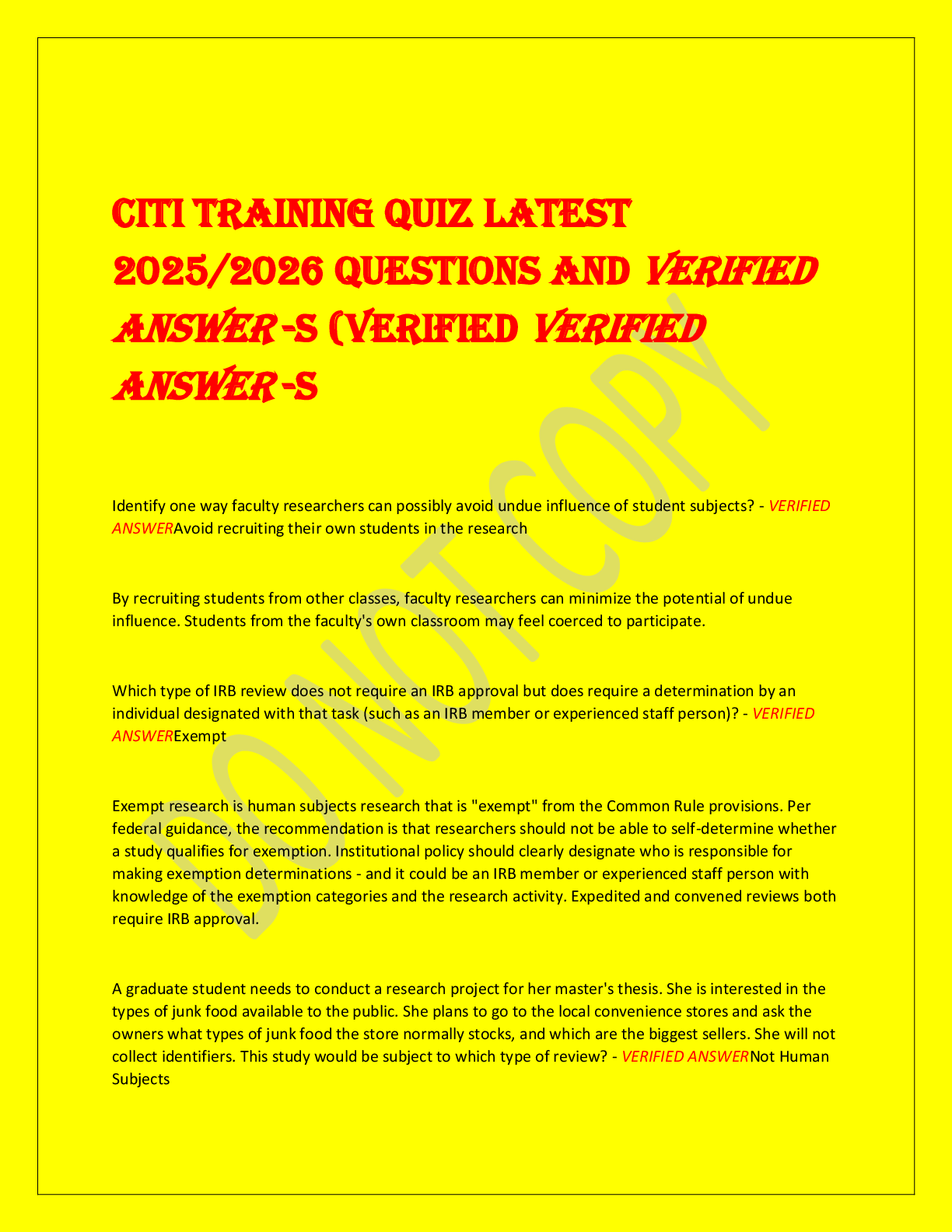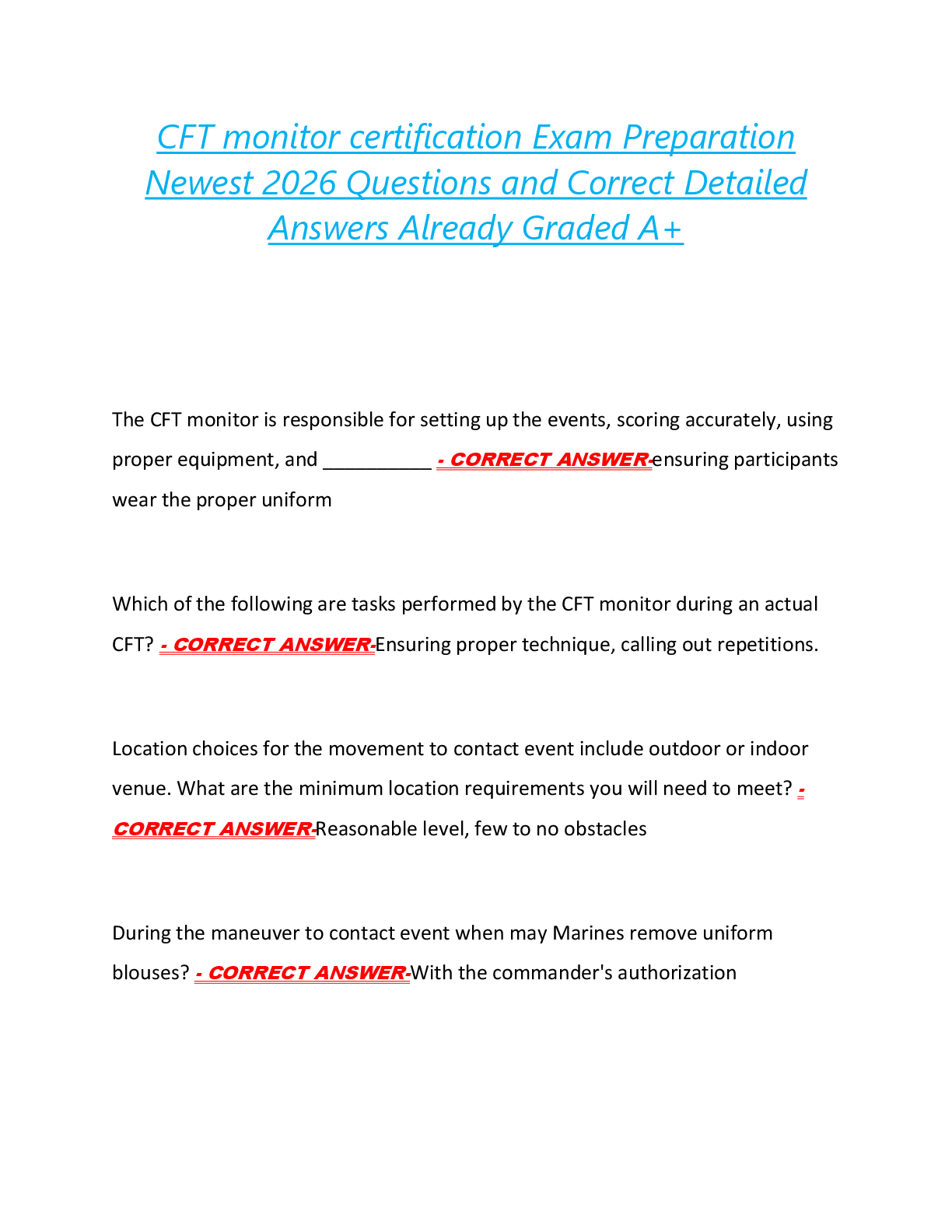NURS 5315 Advanced Pathophysiology Genetics
Core Knowledge Objectives with Advanced Organizers
Genetics
Chapter 4
1. Analyze the pathological processes which alter the structure and role of the DNA and RNA molec
...
NURS 5315 Advanced Pathophysiology Genetics
Core Knowledge Objectives with Advanced Organizers
Genetics
Chapter 4
1. Analyze the pathological processes which alter the structure and role of the DNA and RNA molecules.
a. Describe the structure and function of the DNA molecule and its clinical significance. PAGE 136-137
i. Four types of nitrogenous bases of DNA include adenine, cytosine, guanine, and thymine commonly represented as their first letter. Physical structure of DNA is the double- helix model which can be envisioned as a twisting ladder with chemical bonds as its rungs. Projecting from each side of the ladder at regular intervals are the nitrogenous bases. The bases projecting from one side is bound to the base projecting from the other by a weak hydrogen bond. Adenine pairs with thymine and Guanine pairs with cytosine. Each DNA subunit consists of one deoxyribose molecule, one phosphate group, and one base called a nucleotide.
ii. Function of DNA
1. Genetic code, serves as a basis of genetic inheritance and provide a code for all body’s proteins.
iii.
b. Evaluate the process of DNA replication and describe how it is altered by mutations. PAGE 137
i. DNA must be able to replicate itself accurately during cell division to serve as basic genetic material. DNA replication consists of the breaking of the weak hydrogen bonds between the bases leaving a single strand with each base unpaired. The consistent pairing of adenine with thymine and guanine with cytosine is known as the complementary base pairing and is the key to accurate replication. In base pairing the unpaired base with attract a free nucleotide only if it has the proper complementary base. EXAMPLE- ATTGCT will bond with TAACGA. When replication is complete a new double strand molecule identical to the original is formed. Several proteins are involved in replication. One protein unwinds the double helix, one holds the strands apart and many other perform distinct functions. MOST IMPORTANT is DNA Polymerase. This enzyme
-
-
-
-
-
-
-
-
-
-
-
-
--
-
-
--
-
-
--
-
-
-
-
-
-
-
-
-
-
are found together.
j. Dominant
i. Allele whose effects are observable
k. Recessive
i. Allele whose effects are hidden
l. Homozygote
m. Codominance
i. When the heterozygote is distinguishable from both homozygotes the locus is said to be codominance.
ii. Example: MN blood group, ABO Blood group heterozygotes having A and B alleles express both them as A and B antigens on their red cells.
n. Carrier
i. An individual who has a disease causing allele but is phenotypically normal.
o. Autosomal chromosomes
i. Rare in populations, # of carriers can be high though. Most common is cystic fibrosis in children
p. Sex-linked chromosomes
i.
q. Recessive allele
r. Dominant allele
s. Sex limited trait
i. Trait that can occur in only one of the sexes often because of anatomic differences
ii. EXAMPLE- uterine and testicular defects.
t. Sex influenced trait
i. Trait that can occur much more often in one sex than another
ii. Example- male patterned baldness, Breast cancer in females.
4. Use a Punnett Square to predict the chance of the transmission of an autosomal dominant disorder, an autosomal recessive disorder and a sex-linked disorder.
[Show More]










 – University of the People.png)
